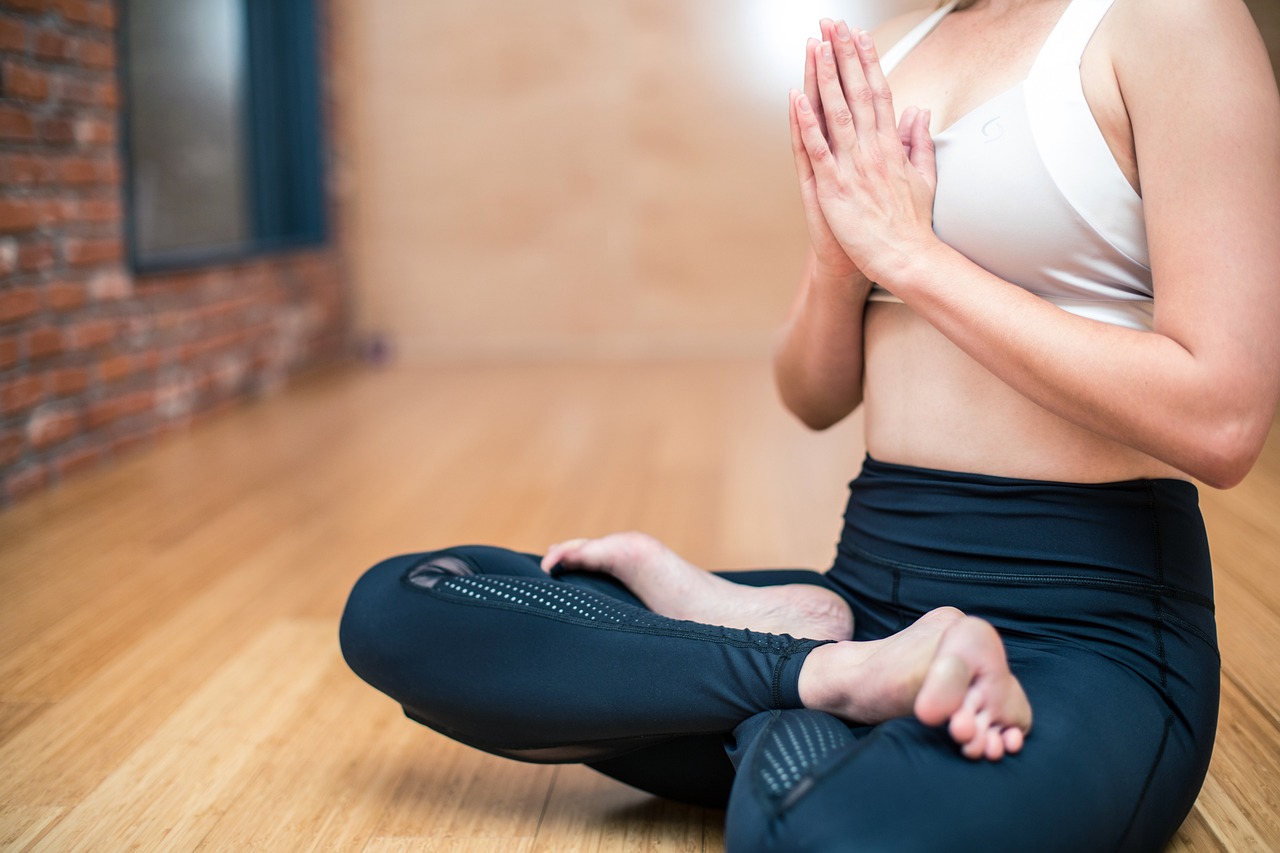
Mindfulness-Based Stress Reduction (MBSR): An Overview

In today’s fast-paced and demanding world, stress has become an inevitable part of our lives. However, there is a powerful tool that can help us effectively manage and reduce stress levels – Mindfulness-Based Stress Reduction (MBSR). MBSR offers a holistic approach to stress reduction by incorporating mindfulness techniques, staying present, and concentration strategies. By practicing MBSR, individuals can cultivate a greater sense of awareness, eliminate distractions, and maintain focus on their tasks. In this article, we will explore the fundamental principles of MBSR and how it can positively impact our well-being.
What is Mindfulness-Based Stress Reduction (MBSR)
Definition of MBSR
Mindfulness-Based Stress Reduction (MBSR) is a well-established program that aims to help individuals manage and reduce stress levels by cultivating mindfulness. It involves various mindfulness techniques, such as meditation, body scan, gentle yoga, and group discussions. MBSR teaches individuals how to be fully present in the moment and accept their thoughts and feelings without judgment, resulting in improved mental and emotional well-being.
Origins of MBSR
MBSR was developed in the late 1970s by Dr. Jon Kabat-Zinn at the University of Massachusetts Medical School. Driven by a desire to integrate Buddhist mindfulness practices into Western medicine, he created MBSR as a way to provide individuals with effective tools for managing stress and promoting overall well-being. Since its development, MBSR has gained recognition and popularity worldwide, with numerous research studies supporting its effectiveness.
Key principles of MBSR
The key principles of MBSR revolve around cultivating mindfulness and non-judgmental awareness. This involves bringing attention to the present moment, observing thoughts and emotions without attachment or judgment, and cultivating an attitude of acceptance and kindness towards oneself and others. The practice emphasizes the development of resilience and the ability to respond to stressors in a more skillful and compassionate manner.
Benefits of Mindfulness-Based Stress Reduction
Physical health benefits
Practicing MBSR has been shown to have numerous physical health benefits. Research studies have found that it can reduce blood pressure, lower heart rate, improve immune system functioning, and alleviate symptoms of chronic pain. By reducing stress levels, MBSR can also improve sleep quality and increase overall energy and vitality.
Mental health benefits
MBSR is highly effective in improving mental health and well-being. Studies have shown that regular practice of MBSR can reduce symptoms of anxiety, depression, and other mood disorders. It helps individuals develop a greater sense of self-awareness, enabling them to recognize and navigate their thoughts and emotions in a healthier manner. MBSR has also been shown to enhance cognitive abilities such as attention, concentration, and memory.
Emotional well-being benefits
Emotional well-being is an essential aspect of overall health, and MBSR can contribute significantly to emotional well-being. The practice helps individuals develop a more compassionate and non-reactive attitude towards their emotions, reducing emotional reactivity and enhancing emotional regulation. It can improve resilience and the ability to cope with stressful situations, leading to greater emotional balance and a healthier relationship with oneself and others.
Components of Mindfulness-Based Stress Reduction Program
Mindfulness meditation
Mindfulness meditation is a foundational practice in MBSR. It involves bringing focused attention to the present moment without judgment. By practicing mindfulness meditation, individuals can develop the ability to observe their thoughts and emotions without getting caught up in them, leading to increased self-awareness and a greater sense of inner calm.
Body scan
The body scan is a guided mindfulness practice that involves systematically bringing attention to different parts of the body. This practice helps individuals develop body awareness and can be effective in reducing physical tension, promoting relaxation, and fostering a deeper mind-body connection.
Gentle yoga
Gentle yoga is an integral component of MBSR. It involves gentle and mindful movement, combining stretching, strengthening, and breath awareness. Gentle yoga not only improves physical flexibility and strength but also encourages individuals to cultivate present-moment awareness and connect with their body in a gentle and nurturing way.
Group discussions
Group discussions provide an opportunity for participants to share their experiences, insights, and challenges with fellow participants and a qualified MBSR instructor. These discussions promote a sense of community and support, allowing individuals to feel heard and understood. Sharing and listening to others’ experiences can deepen the understanding and application of mindfulness in daily life.
Daily mindfulness practices
Consistency is vital in MBSR, and participants are encouraged to incorporate daily mindfulness practices into their routine. This can include short mindfulness meditation sessions, body scans, or moments of mindful awareness during daily activities, such as eating or walking. Engaging in daily mindfulness practices helps individuals sustain the benefits of MBSR beyond the program and integrate mindfulness into their daily lives.
Scientific Evidence for Mindfulness-Based Stress Reduction
Research studies supporting effectiveness
Numerous research studies have consistently shown the effectiveness of MBSR in reducing stress, improving overall well-being, and enhancing the quality of life. These studies have demonstrated the positive impact of MBSR on various aspects, including physical health, mental well-being, and emotional resilience. The scientific evidence supports the efficacy of MBSR as a valid and reliable approach for stress reduction.
Applications in various settings
MBSR has been successfully implemented in a wide range of settings, including healthcare facilities, workplaces, schools, and community centers. It has been adapted to various populations and contexts, such as individuals with chronic pain, cancer patients, veterans, and students. The versatility of MBSR makes it accessible to a broad range of individuals and highlights its potential for addressing various stress-related challenges.
Comparison with other forms of treatment
MBSR has been compared to other forms of treatment, such as medication and cognitive-behavioral therapy (CBT). Studies have shown that MBSR can be as effective as medication in treating certain conditions, such as anxiety and depression, with the advantage of being non-invasive and drug-free. In comparison to CBT, MBSR focuses more on present-moment awareness and acceptance rather than cognitive restructuring, offering individuals a different approach to managing stress.
How to Practice Mindfulness-Based Stress Reduction
Finding a qualified MBSR instructor
To practice MBSR effectively, it is essential to find a qualified MBSR instructor who has received appropriate training and certification. Look for instructors who have completed an MBSR teacher training program and are affiliated with reputable institutions or organizations. A qualified instructor will guide you through the program, provide support, and ensure that you are practicing MBSR safely and effectively.
Participating in a structured program
MBSR is typically taught in a structured program format, usually spanning eight weeks. Participating in a structured program provides a framework for learning and practicing MBSR techniques under the guidance of an instructor. This structure helps individuals develop consistency in their practice and allows for gradual progress and integration of mindfulness into daily life.
Incorporating mindfulness into daily life
Integrating mindfulness into everyday life is a fundamental aspect of MBSR. Beyond the structured program, individuals are encouraged to incorporate mindfulness into their daily routine. This can be done by setting aside specific times for formal mindfulness practice and also by bringing mindful awareness to daily activities, such as eating, walking, or interacting with others. Mindfulness becomes a way of life, enabling individuals to respond to stressors with awareness and compassion.
Who Can Benefit from Mindfulness-Based Stress Reduction
Individuals experiencing stress and anxiety
MBSR is particularly beneficial for individuals who experience high levels of stress and anxiety. The practices taught in MBSR help individuals develop the ability to observe their thoughts and emotions without attachment, reducing the impact of stressors on psychological well-being. By cultivating present-moment awareness and acceptance, individuals can navigate stress and anxiety in a more skillful and compassionate manner.
People with chronic pain or illness
MBSR has proven to be effective in managing chronic pain and illness. It helps individuals develop a different relationship with pain and illness by cultivating an attitude of acceptance and non-judgment. By bringing mindful awareness to sensations and thoughts related to pain or illness, individuals can reduce suffering and improve their overall quality of life.
Students and professionals facing burnout
MBSR is highly relevant for students and professionals who experience burnout due to high levels of stress and workload. The practices taught in MBSR can help individuals develop resilience, improve focus and concentration, and enhance overall well-being. By incorporating mindfulness into their daily lives, individuals can better manage stress and prevent burnout.
Anyone seeking personal growth and self-awareness
MBSR is not limited to individuals experiencing stress or specific challenges; it is also beneficial for anyone seeking personal growth and self-awareness. The program provides tools and techniques to deepen self-awareness, cultivate compassion, and develop a greater sense of well-being. MBSR offers a pathway to explore one’s inner landscape and connect with the present moment in a more meaningful way.
Limitations of Mindfulness-Based Stress Reduction
Not a substitute for medical treatment
While MBSR has shown significant benefits for stress reduction and overall well-being, it is important to note that it is not a substitute for medical treatment. Individuals who require medical treatment or therapy should consult with healthcare professionals before using MBSR as a sole method of treatment.
Requires consistent practice and dedication
To fully benefit from MBSR, consistent practice and dedication are necessary. Like any skill or practice, the benefits of MBSR come with regular and sustained effort. It requires a commitment to engage in daily mindfulness practices and participate in the structured program.
May not be suitable for everyone
While MBSR has been proven effective for many individuals, it may not be suitable for everyone. Some individuals may find certain mindfulness techniques challenging or may not resonate with the philosophical aspects of the practice. It is essential to explore whether MBSR aligns with personal values and goals before committing to the program.
Real-Life Success Stories with Mindfulness-Based Stress Reduction
Case studies and testimonials
Numerous case studies and testimonials attest to the transformative power of MBSR. Individuals have shared stories of how MBSR helped them reduce stress, manage chronic pain, improve mental well-being, and enhance overall quality of life. These personal accounts provide valuable insight into the real-life impact of MBSR.
Impact on individuals’ lives
MBSR has had a significant impact on individuals’ lives, enabling them to develop healthier coping strategies, improve relationships, and find greater joy in life. It has supported individuals in making positive behavioral changes and cultivating a deeper sense of self-compassion and acceptance.
Personal anecdotes
Personal anecdotes abound when it comes to the efficacy of MBSR. Individuals have shared stories of how MBSR helped them overcome challenges, find clarity in difficult situations, and develop a more balanced and contented mindset. These anecdotes highlight the potential for personal growth and transformation through the practice of MBSR.
Mindfulness-Based Stress Reduction Resources
Books
There are several books available that provide comprehensive information about MBSR and offer guidance for practicing mindfulness techniques. Some highly recommended books include “Full Catastrophe Living” by Jon Kabat-Zinn, “Wherever You Go, There You Are” by Jon Kabat-Zinn, and “The Mindful Way Workbook” by John Teasdale, Mark Williams, and Zindel Segal.
Online courses and programs
Numerous online courses and programs provide accessible platforms for learning and practicing MBSR. Websites such as Coursera, Udemy, and Mindfulness-Based Programs offer online courses taught by qualified instructors. These courses can be valuable resources for individuals who prefer a flexible learning environment.
MBSR apps
There are several MBSR apps available that offer guided meditation, mindfulness exercises, and resources for practicing MBSR. Apps like Headspace, Calm, and Insight Timer are popular choices for individuals looking to incorporate mindfulness into their daily lives conveniently.
Meditation and yoga retreats
Attending meditation or yoga retreats can provide a deep immersion in mindfulness practice and offer an opportunity for personal growth and self-discovery. Retreat centers such as Spirit Rock Meditation Center, Insight Meditation Society, and Omega Institute offer MBSR-based retreats led by experienced teachers.
Conclusion
In conclusion, Mindfulness-Based Stress Reduction (MBSR) is a widely recognized program that offers numerous benefits for individuals seeking to manage stress, enhance well-being, and cultivate mindfulness. With its foundation in mindfulness meditation, body scan, gentle yoga, and group discussions, MBSR provides a comprehensive approach to reducing stress and improving overall quality of life. Scientific research supports its effectiveness, and real-life success stories demonstrate the transformative impact of MBSR. By finding a qualified instructor, participating in a structured program, and incorporating mindfulness into daily life, anyone can experience the benefits of MBSR. So why not explore MBSR to discover the power of mindfulness in reducing stress and promoting overall well-being?





















